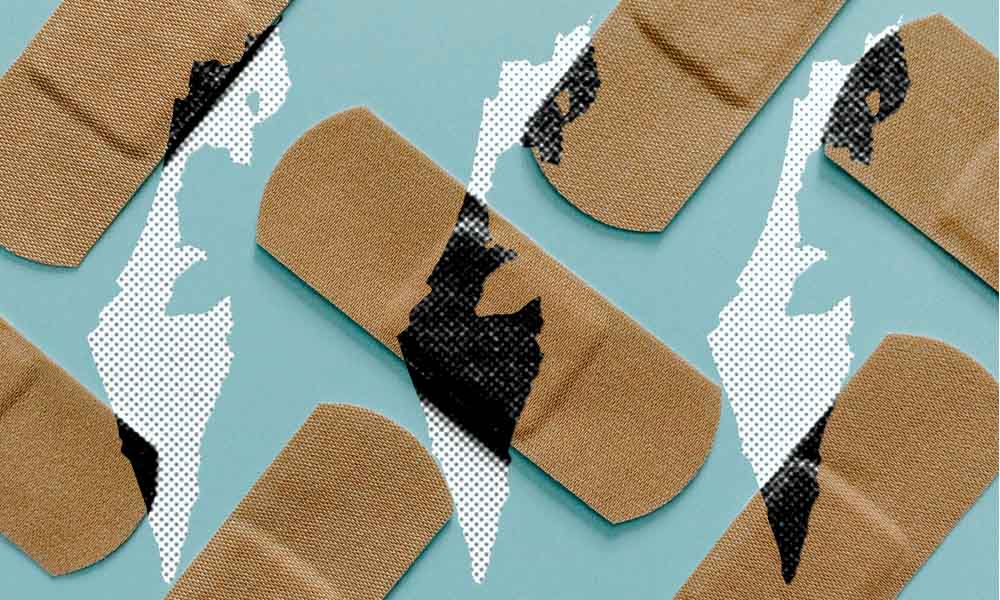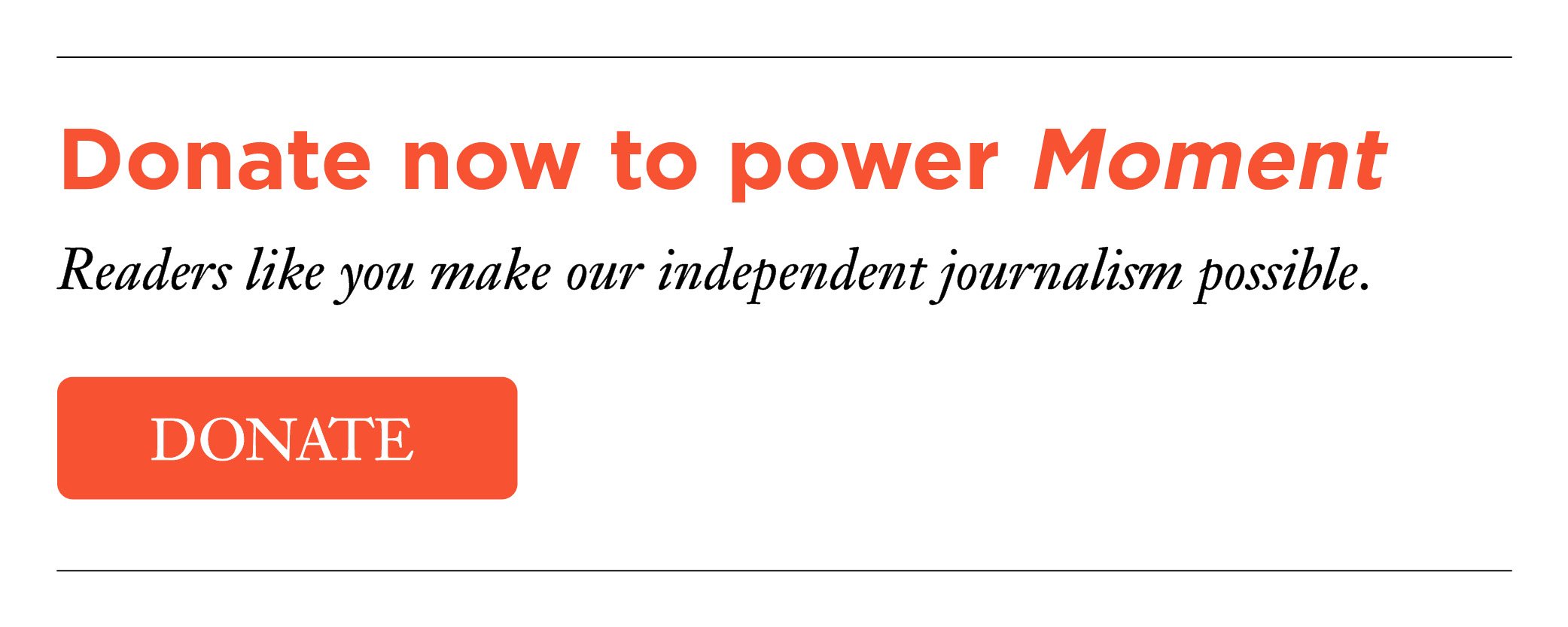Jews and Moral Injury
Finding faith after communities betray our values

Talia Werber had traversed the halfway mark to becoming a rabbi before her journey was wrenched off course. Much of her life had been spent fighting for democratic and civil rights, but in early 2024, after three years of studies at the Reconstructionist Rabbinical College (RCC) in Wyncote, PA—the only seminary associated with Reconstructionist Judaism and also one that ordains rabbis who identify as anti-Zionist—she found herself surrounded by peers calling her a racist.
The rabbinical school defines itself as a progressive Zionist organization, and Werber enrolled as a proud Zionist, believing that her belief system would be supported. Instead, she felt as if anti-Zionist voices were platformed by staff who claimed they were interested in pluralism, while students who expressed any empathy towards Zionism or Israel were vilified.
Post-October 7, Werber watched fellow students equate Zionism with white supremacy and bigotry, and it all came to a head at a student association meeting also attended by staff, including the school’s president. Werber and a handful of other Zionist students were called racist by other students because they had opposed the student association’s donating to a Black Jewish group that had referred, on social media, to Israel’s actions as settler colonialism, apartheid and genocide.
Moral injury can occur when the people, movements or organizations we trust betray our values, causing psychological distress and often leading to anxiety or depression.
After Werber co-wrote an op-ed in The Forward describing the experience that led to her quitting the school, Rabbi Alex Weissman, the director of the mekhinah (preparatory program) and cultural and spiritual life at RRC, sent a pre-Shabbat email quoting the weekly Torah portion to the college community, implying that Werber had borne false witness against her fellow Israelites. Speech is powerful, the email said, and there need to be consequences “when people speak unethically.”
“The whole experience [brought] a lot of heartbreak and a lot of questioning where I belong,” she says now. Because leaders not only didn’t intervene at the meeting but were ordaining peers whose morals, in her view, went against the values the Reconstructionist movement claimed to stand for, it felt as if the school was endorsing their behavior. When Jewish leaders transgress your own personal ethics, it can shatter the bond to your faith—but also to the Jewish people overall, she says. Some might classify this as a “moral injury.”
“It can be like severing one’s sense of connection, identity, belonging,” Werber explains.
In September, the American Psychiatric Association will add the concept of moral injury to the the DSM-5, the fifth edition of its Diagnostic and Statistical Manual, which classifies mental health disorders. It will appear under the section Other Conditions That May Be a Focus of Clinical Attention.
After October 7, American Jews across the political spectrum watched figureheads struggle to recognize antisemitism. At the same time, many who grew up attending Jewish schools and temples have felt lied to by religious leaders regarding Israel’s treatment of Palestinians.
Moral injury can occur when the people, movements or organizations we trust betray our values, causing psychological distress and often leading to anxiety or depression. In the DSM-5, it’s defined as occurring “when the focus of clinical attention is a moral, religious, or spiritual problem. Moral problems include experiences that disrupt one’s understanding of right and wrong, or sense of goodness of oneself, others or institutions.”
The timing of this decision is especially relevant for Jews. After the October 7 massacres in Israel, American Jews across the political spectrum watched figureheads and members of their parties struggle to recognize antisemitism within their ranks. At the same time, many who grew up attending Jewish schools and temples have felt as if they have been lied to about by religious leaders about Israel’s treatment of Palestinians. For some, the effects of this discord on their mental health is subtle, but for others, it causes distress to the point of moral injury.
Moral injury is often characterized specifically as occurring when a person in leadership betrays a follower’s moral sense, which can lead to that person feeling complicit if they followed the leader’s guidance. But moral injury can also be felt as communities and movements going astray. It’s a sense of hopelessness and loss of faith and meaning in one’s life when the people you look up to—those who shaped your identity—transgress your ethics.
Days after Hamas’s terror attack, New York-based lawyer “Rachel,” who preferred not to give her real name and considers herself a liberal who identifies with the Israeli progressive movement, saw posts on her clients’ Instagram feeds celebrating bulldozers breaching the Israeli security fence. Others lionized people tearing down hostage posters.
“It was a really shocking thing,” she says. At the same time, “lots of people in my Jewish world let their anti-Arab bigotry hang out. I started realizing my life was getting more and more narrow and lonely.”
While the effects of moral transgression on mental health will vary from person to person, “Given Judaism and Jews and Jewishness—which is about questioning and intelligence—and given our being victimized over the centuries, I can’t see anyone not being affected by what’s going on,” says Brett Litz. The clinical psychologist and director of the Mental Health Core of the Massachusetts Veterans Epidemiological Research and Information Center at the VA Boston Healthcare System is referring to the generational trauma Jews carry and the effect of a polarized society that views politics around the West Bank, Gaza and Israel with little nuance, deeming one side good and the other evil. When swaths of society glorify terrorism as a way of virtue signaling, “I can’t imagine that there isn’t distress,” he says. “Whether [this distress] crosses a line into it dominating your consciousness, the way you’re living, how you feel about yourself in the world, and how you’re functioning, there’s a lot of variability in that.”
Some people are simply predisposed genetically to mental health struggles. Other variables include one’s support system, how they were raised and their proximity to Israel and Gaza.
While moral distress causes temporary discomfort, moral injury affects your understanding of right and wrong. It shakes your faith in society and affects your relationships.
“If you’re giving up what you’re doing or if you can’t walk outside because you’re expecting there to be brownshirts there or Kristallnacht to happen in a week or so, you need help, and it’s a serious problem, and moral injury is part of that,” Litz says.
Most research on moral injury has been done on veterans and military personnel who may have carried out orders that went against their values. The proposed addition to the DSM-5 is important, says Duke psychiatrist Harold Koenig, who co-created tools to measure moral injury, because it can lead to further research.
“You’re trying to explain the experience of individuals,” Litz notes, and whether it’s in a handbook or not, it’s an experience people struggle with, especially those with millennia of intergenerational trauma. The definition is important, he said, because “It will help people make sense out of their experience.”
Still, Litz notes, its inclusion should not be overstated. The DSM is a tool to diagnose clients so therapists can bill for services, and moral injury is not an actual diagnosis, but instead is listed as a symptom.
Temples and Jewish communal organizations can support people struggling with moral injury by cultivating a culture allowing for nuance and diverse opinions. Not avoiding tough topics, but not instigating intense debates either, Koenig says. Instead, leaders should practice listening to community members’ different views.
“A lot of times, our brains and our minds heal themselves if we’re in an environment in which we can talk about these things, where we’re not judged or criticized. Where we feel safe,” he says.
Since moral injury is about “social pain” from losing faith in humanity, it can be beneficial for Jews struggling to find others who are grappling with the same issues so they can repair their sense of belonging and remember there are compassionate people who care about similar issues, Litz says. This was the case for many who attended a March conference for Smol Emuni, a group of Orthodox Jews concerned about Israel’s actions in Gaza, which they felt were being ignored by their communities. What started as a bimonthly living room salon with leftist speakers turned into an event held at Manhattan’s B’nai Jeshurun Synagogue attended by over 400 people.
“The conference had that real magical sense of something new is happening here,” says Esther Sperber, one of the organizers, comparing it to coming out of the closet for many in attendance, some of whom shed tears at points. “There was definitely a sense of people in the room being excited to have found other people.”
Still, you shouldn’t only surround yourself with folks who 100 percent share your value system, Litz notes. Instead, he recommends searching for the humanity in others as well as yourself. Recognize we are all learning and making mistakes.
Also, make sure you are taking care of yourself, exercising and eating healthy, Litz said. Because Werber has a history of depression and anxiety, she recognized how moral injury was impacting her, and had coping strategies on hand. She found herself attending Jewish events, and looking at peers skeptically, so she increased the friends she surrounded herself with, attended therapy, wrote, cooked, read psalms and hung out with other Zionist students from her former school.
“The Jewish community is not just my rabbinical school,” she reminds herself. “The Jewish community spans countries and eons and I’m a part of that.”
Rachel, the New York attorney, also dove into therapy, finding an Israeli therapist who inspired her because she, too, had been through so much. She re-embraced Jewish traditions she grew up with: lighting Shabbat candles and singing Havdalah. Like Werber, she also connects to psalms because, she says, David was hiding from “a crazy king,” similar, in her view, to the leaders Israelis and Americans are confronted with.
Hopelessness, she decided, was a choice, so every Sunday, she meets with the Hostage Family Forum NY to call for a return of the hostages.
“The energy of the group was a positive thing,” she says. “I have a lot of friends in Israel, in the actual resistance movement, and I believe in them, and I keep in touch with them, and I try to amplify their voices, and I’m not willing to give up. I actually don’t think we have another choice.”
In July, after a terrorist attacked a Colorado Run for Their Lives walk in honor of the hostages, injuring over 20 people and killing one, Rachel was devastated. She had plans to be out of the city the following week, but immediately shifted to attend the Hostage Family Forum NY protest.
When she arrived, there were more counter protestors than ever before.
“It was scary,” she said, “but I also felt emboldened.”
Top image credit: Free Vector Maps


